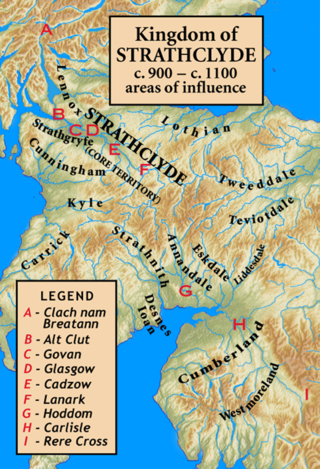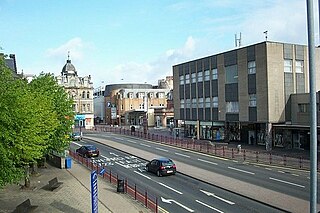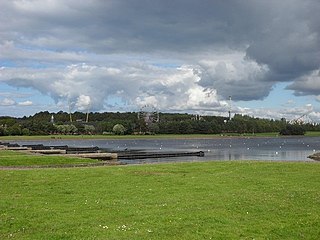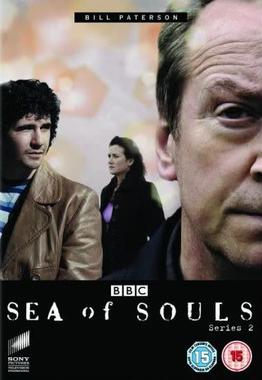
The River Clyde is a river that flows into the Firth of Clyde in Scotland. It is the ninth-longest river in the United Kingdom, and the second or third longest in Scotland. It runs through the major city of Glasgow. Historically, it was important to the British Empire because of its role in shipbuilding and trade. To the Romans, it was Clota, and in the early medieval Cumbric language, it was known as Clud or Clut. It was central to the Kingdom of Strathclyde.

Glasgow is the most populous city in Scotland, the third-most populous city in the United Kingdom, and the 27th-most populous city in Europe. In 2022, it had an estimated population as a defined locality of 632,350 and anchored an urban settlement of 1,028,220. Glasgow became a county in 1893, the city having previously been in the historic county of Lanarkshire, and later growing to also include settlements that were once part of Renfrewshire and Dunbartonshire. It now forms the Glasgow City Council area, one of the 32 council areas of Scotland, and is administered by Glasgow City Council.

Strathclyde was a Brittonic kingdom in northern Britain during the Middle Ages. It comprised parts of what is now southern Scotland and North West England, a region the Welsh tribes referred to as Yr Hen Ogledd. At its greatest extent in the 10th century, it stretched from Loch Lomond to the River Eamont at Penrith. Strathclyde seems to have been annexed by the Goidelic-speaking Kingdom of Alba in the 11th century, becoming part of the emerging Kingdom of Scotland.

Hamilton is a large town in South Lanarkshire, Scotland. It serves as the main administrative centre of the South Lanarkshire council area. It sits 10 miles (16 km) south-east of Glasgow, 37 miles (60 km) south-west of Edinburgh and 74 miles (120 km) north of Carlisle. It is situated on the south bank of the River Clyde at its confluence with the Avon Water. Hamilton is the county town of the historic county of Lanarkshire and is the location of the headquarters of the modern local authority of South Lanarkshire.

The University of Strathclyde is a public research university located in Glasgow, Scotland. Founded in 1796 as the Andersonian Institute, it is Glasgow's second-oldest university, having received its royal charter in 1964 as the first technological university in the United Kingdom. Taking its name from the historic Kingdom of Strathclyde, its combined enrollment of 25,000 undergraduate and graduate students ranks it Scotland's third-largest university, drawn with its staff from over 100 countries.

Paisley is a large town situated in the west central Lowlands of Scotland. Located north of the Gleniffer Braes, the town borders the city of Glasgow to the east, and straddles the banks of the White Cart Water, a tributary of the River Clyde.

Motherwell is a town and former burgh in North Lanarkshire, Scotland, United Kingdom, south east of Glasgow. It has a population of around 32,120. Historically in the parish of Dalziel and part of Lanarkshire, Motherwell is the headquarters for North Lanarkshire Council. Geographically the River Clyde separates Motherwell from Hamilton to the west whereas the South Calder Water separates Motherwell from Carfin to the north-east and New Stevenston and Bellshill towards the north.

Dumbarton is a town in West Dunbartonshire, Scotland, on the north bank of the River Clyde where the River Leven flows into the Clyde estuary. In 2006, it had an estimated population of 19,990.
The Royal Incorporation of Architects in Scotland (RIAS) is the professional body for architects in Scotland.
Richard Murphy OBE is a British architect and businessman. He is the founder and principal architect of Richard Murphy Architects, an architectural firm operating in Edinburgh. He is a winner of the 2016 RIBA House of the year.

Strathclyde Country Park is a country park located on the outskirts of Motherwell in North Lanarkshire, Scotland, named after the former Strathclyde region of Scotland. It is often commonly referred to as Strathclyde, or simply Strathy.

Sea of Souls is a BBC paranormal drama series, recounting the fictional activities of a group of investigators into psychic and other paranormal events. Produced in-house by BBC Scotland and for the final season by Carnival Films, initially in association with Sony Pictures Television International, the series debuted on BBC One in the UK in February 2004. A second series was shown from January 2005, with a third following in 2006 and then a fourth in April 2007.

Glasgow College of Nautical Studies was a further education college of nautical and maritime studies, and a provider of marine and offshore training courses. On 26 March 2009, it was announced that the college would merge with the Central College and Glasgow Metropolitan College. In 2010, the merger was completed the college was absorbed into the City of Glasgow College. Degree courses, in subjects including Naval Architecture and Marine Engineering, were offered in association with the University of Strathclyde.

Jordanhill railway station is a side-platformed suburban railway station in the Jordanhill area in the West End of Glasgow, Scotland. The station, which is governed by Transport Scotland and managed by ScotRail, lies on the Argyle Line and the North Clyde Line. In operation since 1887, the station stemmed losses for an area that was in decline.

The Council of Economic Advisers (CEA) in Scotland was a group of economists and leading figures from the private sector and academia who advised the Scottish Government. Its principal aims were to advise on improving the competitiveness of the Scottish economy and how to tackle inequality within Scotland. It was established in 2007, meeting for the first time on 21 September. The Council had two formal meetings a year and also carried out engagement and work between meetings. Minutes of its meetings and other reports are available on its website.
Amar Latif is a Scottish entrepreneur, television personality and professional traveller. His blindness is due to the incurable eye condition retinitis pigmentosa. By his late teens he had 95 per cent sight loss.
Sir Alastair MacTavish Dunnett was a Scottish journalist and newspaper editor. He edited The Daily Record newspaper for nine years and The Scotsman newspaper from 1956 to 1972. In 1975 he became chairman of Thomson Scottish Petroleum and was much involved in the establishment of the oil terminal at Flotta in Orkney. From the 1950s to the 1980s he was involved in many Scottish cultural activities including being governor of the Pitlochry Festival Theatre (1958–1984). He was awarded an honorary degree of LLD by the University of Strathclyde in 1978 and was knighted on 4 July 1995.
The Pevsner Architectural Guides are four series of guide books to the architecture of the British Isles. The Buildings of England series was begun in the 1940s by the art historian Sir Nikolaus Pevsner, with its 46 original volumes published between 1951 and 1974. The fifteen volumes in The Buildings of Scotland series were completed between 1978 and 2016, and the ten in The Buildings of Wales series between 1979 and 2009. The volumes in all three series have been periodically revised by various authors. The revision of the England series will be completed in June 2024 with the re-issue of Staffordshire. The Buildings of Ireland series was begun in 1979 and remains incomplete, with six volumes published. A standalone volume covering the Isle of Man was published in 2023.

James Allan McColl OBE is a Scottish businessman who is the chairman and chief executive officer of Clyde Blowers. He was a member of the Council of Economic Advisors.
George Fleming is a Scottish civil engineer specialising in environmental issues. Educated at the Royal College of Science and Technology, Stanford University and the University of Strathclyde he is a doctor of philosophy. His research started with studies of the hydrology of the River Clyde that expanded to a range of subjects including, flood risk, dredging, nuclear waste management, decommissioning of North Sea platforms and contaminated land. He has written reports on flooding for the Institution of Civil Engineers and the British government. Fleming was involved in the planning stages of the Glasgow Garden Festival of 1988 and established a way of reusing dredgings from the Clyde to provide topsoil for the event. He has served as a non-executive director of British Waterways, Port of Tyne boards and for WRAP, a government quango whose aim was to promote recycling and resource efficiency. He is founder and chairman of the EnviroCentre environmental consultancy, of which his son is now managing director.













